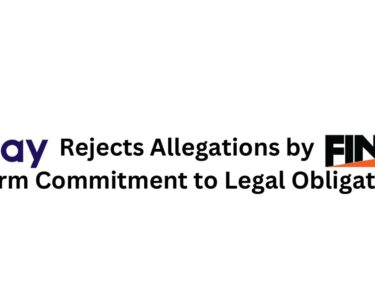He joined the firm in 1997, when it was still all about PCs and servers, before the explosion in cloud services and Dell’s metamorphosis into a company offering a full gamut of tech services to its clients.
“It’s been a dramatic change over the years,” he says. “Think about the technology era we were in. Notebooks were extraordinarily hot at the time, they were more affordable.In the last 20 years, we’ve seen the rise of the dotcom era, the dotcom crash. We saw the economy come back up, and then in 2008, 2009, the impact from the financial crisis. Through all of that, Dell has evolved.”
Part of the impetus behind that has been the drive of founder Michael Dell, with whom Sweet works closely. Dell has taken the company to a point where it was one of the largest tech firms in the world and then through a particularly ugly battle to wrest control from investors and return it to a private firm.
Privatisation
He was vocal about the effect the privatisation would have on Dell as a business. It would give it a certain amount of freedom from the demand for short-term results, satisfying investors rather than what the business needed – innovation. A year after the merger was completed, he publicly lauded the decision, saying the company had got it right.
It’s an assessment Sweet agrees with.
“I think it’s been liberating for the company. It clearly freed us up from that 90-day EPS report cycle. It allowed us the opportunity to do a better job of thinking through our investment and investment horizon, and making some bets around what are those investments that we need to make that we know are not going to pay off in the short term,” he says.
Going private drove a “renewed spirit of entrepreneurship and risk taking within the business”, Sweet says. “Michael was very adamant that we’d become a little bit risk averse. It was time to reenergise the entrepreneurial spirit, to make bets around investment and where technology is headed and where did we want to play in that. It was a really good move for the company. ”
It was still a risk, and one you might think Sweet, with his background in auditing, would not be overly keen on. It’s a stereotype he doesn’t live up to though.
Every move Sweet has made in his career has been made with a quiet confidence that it was the right one, no matter how big a leap it seemed.
Intermediate stop
When he moved from then-Pricewaterhouse to Telos, to take up a role as vice-president of finance and accounting, it had a specific end result: teaching Sweet how to manage a larger team, thinking about budgets and forecasts and how to manage a large organisation. It was, he says, a good intermediate stop for him before he plunged into Dell.
He describes his career journey as “interesting”.
“I’ve always been confident that technology is going to be around. It’s going to evolve and shape and change, but if you think about the basic fundamentals – helping drive efficiency, helping you do your job better, helping advance human potential – I truly believe there is the opportunity to use technology to advance and realise potential. The forms may change, how we interact with it may change, [but] fundamentally it’s going to be here. It’s been a pretty natural evolution over the years. It’s been a lot of work, but it’s been an interesting evolution.”
As a company, Dell – now Dell EMC since its merger with the US data storage group received shareholder backing and cleared the regulatory hurdles in the latter half of 2016 – is certainly something of a chameleon.
“We’ve clearly broadened our capabilities out since the mid-2000s when we started an acquisition framework,” says Sweet. That has seen Dell go on something of a shopping spree. In 2006, it bought gaming hardware company Alienware, before going on to add to its cloud and network infrastructure expertise with a round of purchases in software, networking, storage.
It culminated in the merger with EMC, announced in October 2015, in a $67 billion deal that would be the largest tech acquisition to date.
You could draw a comparison between Dell’s evolution and Sweet’s own career. Since he joined the group, he has taken up various finance roles and headed up sales teams, building up his experience and skills. Over the past couple of years, Sweet has seen his role expand further. On top of his core CFO responsibilities, the Dell financial services division reports to him, as does the strategy team. It’s a challenge, but one he seems to relish.
Baptism of fire
But it has been something of a baptism of fire. He took over the role in 2014, just as the company went private, bringing with it new challenges for the firm in terms of getting its new structure established and its new financial metrics established. Shortly afterwards came the announcement of the EMC merger, and Sweet was involved in the due diligence on the deal.
“You don’t do this by yourself,” he says, giving credit to his team and partners Silver Lake, the investment firm behind some of the company’s most dramatic changes. “It’s been a lot of work, but it’s been a fun journey,” he says.
Still, it must be stressful being an executive of such a large company at a pivotal moment in its history?
“You try to find those pressure point reliefs. My stress relief is working out, running, so I do a lot of that.” He pauses. “I’ve been doing a lot of running over the last few years. That’s my time, where I can unwind and think.”
The Dell EMC merger moved “relatively quickly” given its size, although Dell would have liked to see things resolved on the regulatory side of things a little faster.
“I think things should move pretty quickly, I’m a results oriented person. I think this job drives you that way,” he says. “I’ve been described as thoughtful but impatient. I think that’s a good description, and it’s pretty accurate – at least the impatient part is.”
The EMC merger is now a done deal. The transaction, however, isn’t without its negative points. Although the majority of EMCs employees will remain with Dell, Sweet admits there is some crossover between the two parts of the enlarged group, leading to a number of redundant roles.
That is one of the downsides of heading up such a high profile company. While most of the news around the merger was positive for both companies and welcomed by most employees, the small percentage impacted by the inevitable cuts will have a different view of the whole thing.
Job losses
Job losses were one of the big fears when Dell proposed the merger, particularly among its Irish workforce. Prior to the merger, Dell had operations in Dublin, Limerick and Cork and, although it had been several years since the company closed down its manufacturing business in Limerick, memories of that difficult time were still fresh in the minds.
Post-merger, Dell EMC employs about 140,000 people, and remains a major employer here. The company now has around 5,500 full time permanent employees.
But the Irish workforce hasn’t emerged unscathed from the merger; a number of people have found themselves among the casualties. The company won’t say how many people have left the firm or are in the process of leaving as a result of the deal, but it is understood to be a small percentage. On paper, it seems minimal damage. Sweet is aware that this will not be the view of those affected by the losses, however.
“You try to be as sensitive as you can around these things,” he says. “You try to do it as humanely and respectfully as you can. It’s never fun, it’s hard. But you have to get through these things.”
There may be other changes coming down the line beyond Dell EMC’s control. The Trump administration has set out its stall on encouraging US companies to manufacture and locate their operations at home rather than abroad. Sweet is cautious about passing judgment on what may come, without knowing exactly what the new administration will do.
“I think we’re going to have to see how this evolves,” he says. “It’s early yet. There are lots of conversations and speculation. I think our job as leader of these large companies is to provide our input into the appropriate authorities on the proposed regulations or frameworks for policies, but ultimately we’re going to have to deal with it. Whatever they pass, it’s our job to optimise the company in the most appropriate way possible.
“These are large, complex companies. To shift a manufacturing footprint, it’s a big effort and you wouldn’t do that unless you thought there was value to it.”
Brexit
Ireland may well see a boost from Brexit though. Again, nothing is clear yet – Article 50 has yet to be triggered and that is only the starting point of a two-year negotiation, although British prime minister Theresa May has in recent days laid out what Brexit will ultimately mean: leaving the single market.
Sweet says eliminating uncertainty is key at the moment, but he can see a benefit for Ireland going forward.
“Assuming those plans do go ahead, I do think that, ultimately, that could have some sort of favourable impact for Ireland. It’s an English-speaking gateway to the EU. Presumably, you would think, there is some opportunity there.”
The recent tax trouble with Apple doesn’t appear to have tainted the State’s reputation as a business location though, at least not for Dell.
“We’re still very bullish on Ireland. We like its business environment, we like the people and the talent base that’s here. Clearly, we still have a big presence here,” he says. “In terms of working with the country or the IDA, my perception hasn’t changed.
Sweet is in Ireland on one of his frequent trips to Dell EMC’s overseas offices. The travel is an important part of his role to him. Although as CFO you would expect him to be able to delegate much of the customer-facing tasks, Sweet says he likes to get out there and meet the people who keep Dell EMC in business.
That will be critical for the company going forward. The future of Dell EMC, Sweet says, is bright. The company has built expertise in the new platform technologies coming down the line.
He is still realistic though. “There is no other company in a better position,” he says. “But there’s a lot of work to do and nothing is going to be given to us.”
CV
Name: Tom Sweet
Age: 55
Position: Chief financial officer, Dell EMC
Family: married with three children
Something you might expect: He sees the evolution of technology as an interesting journey and one that the company has been well positioned to take advantage of as it grows.
Something that might surprise you: He still meets customers and clients in the regions where the company operates. That amount of traveling can put pressure on family life, but Sweet seems to have struck the right balance over the years. His children are now adult, with the youngest at 21. “My wife is ready for grandchildren,” he says. “I’ve not quite reconciled that in my mind yet.”




